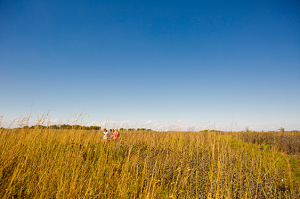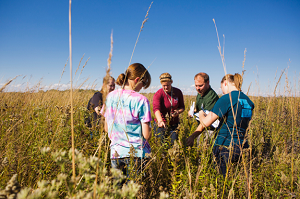Non-Vet Specializations and Careers for Animal Lovers and Biology Students
So you want to work with animals, but aren’t quite sure if becoming a veterinarian is the route for you? Not to worry. There are plenty of awesome careers for biology students and animal lovers outside the veterinary route. We’ve listed three examples of areas of specialization bachelor’s in biology students can focus on outside of veterinary medicine below: animal behavior, wildlife and zoology, and policy and protection.
Animal Behavior Specialization
Animal behaviorists apply the principles of animal behavior science while studying how animals interact with each other and their environment.
They usually specialize in certain types of animals like large animals, wild animals, domestic, fish, birds or livestock. There are a number of things that influence how an animal acts the way it does, including change in climate, hunger, illness, hormones, or predators/prey.
Many find successful careers as an animal behaviorist with a bachelor’s in biology, while others earn master’s degrees in addition. Students interested in an advanced degree in animal behavior can look to the Animal Behavior Society, the leading professional organization in North America for the study of animal behavior, which has a resource guide to programs in animal behavior, which covers various specialties across the US.
At William Woods, biology students interested in animal behavior could also take courses in psychology. While courses will look more into human psychology, the science itself can help you understand how you may apply it to animals.
Wildlife Biology and Zoology Specialization
 Branch into wildlife studies, including preservation of species in national parks, state forests, or residential areas. Most wildlife biologists work for organizations or government agencies, such as zoos, the U.S. Fish and Wildlife Service, the National Park Service, the Wildlife Conservation Society, and more. Wildlife biologists can work in tagging, research assistants, invasive species management, ecologists, foresters, wildlife rehabilitation and more.
Branch into wildlife studies, including preservation of species in national parks, state forests, or residential areas. Most wildlife biologists work for organizations or government agencies, such as zoos, the U.S. Fish and Wildlife Service, the National Park Service, the Wildlife Conservation Society, and more. Wildlife biologists can work in tagging, research assistants, invasive species management, ecologists, foresters, wildlife rehabilitation and more.
According to the Bureau of Labor Statistics (BLS), zoologists and wildlife biologists conduct research for a number of uses. Many zoologists and wildlife biologists work to increase our knowledge and understanding of wildlife species. Traditionally, many wildlife biologists researched ways to encourage abundant game animal populations to support recreational hunting and tourism.”
The BLS notes the median annual salary for zoologists and wildlife biologists was $60,520 in 2016, and many entry level positions require a bachelor’s degree in biology.
Animal Policy and Protection Specialization
Whether your goal is saving tigers or domesticated cats, elephants or dogs, there are organizations all over the world working to advance their missions of fighting for change to the protection, humane treatment, and policies regarding animals both wild and in our homes.
 People with a science background and understanding of animals and wildlife are needed in a number of areas in policy and protection to translate scientific concerns into action. Organizations such as the World Wildlife Fund, The Humane Society of the United States and others hire scientists, policy coordinators and sometimes a job with a mix of both every year to help them advance their missions. Policy and protection-focused organizations also conduct and fund a number of research initiatives to advance their various missions protecting all kinds of animals.
People with a science background and understanding of animals and wildlife are needed in a number of areas in policy and protection to translate scientific concerns into action. Organizations such as the World Wildlife Fund, The Humane Society of the United States and others hire scientists, policy coordinators and sometimes a job with a mix of both every year to help them advance their missions. Policy and protection-focused organizations also conduct and fund a number of research initiatives to advance their various missions protecting all kinds of animals.
Any of these sound interesting? Find more great biology careers working with animals, take a cool careers quiz or find out the nation’s top animal-mission-minded employers at learnhowtobecome.org.

